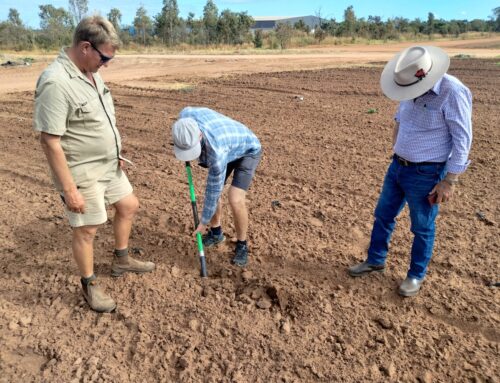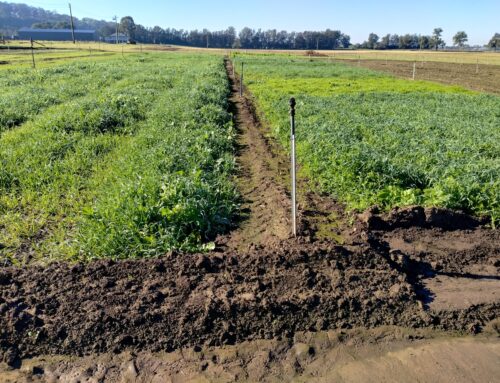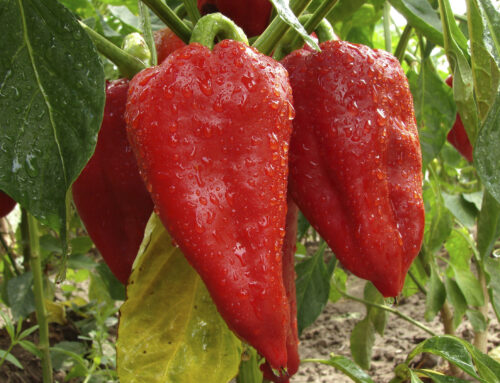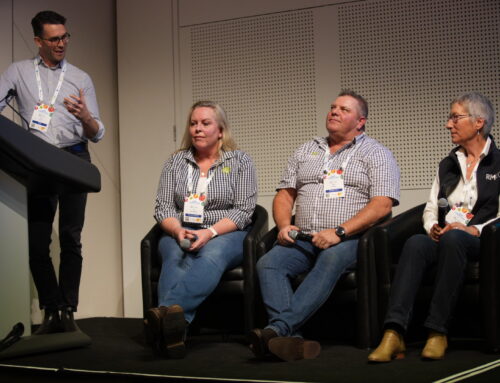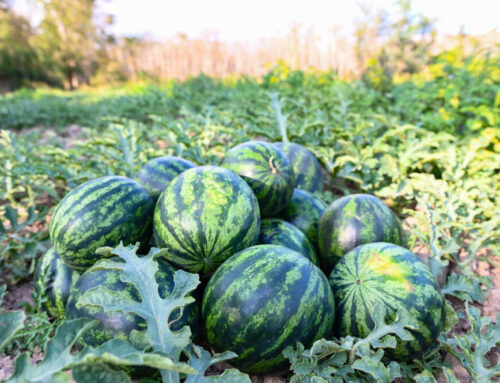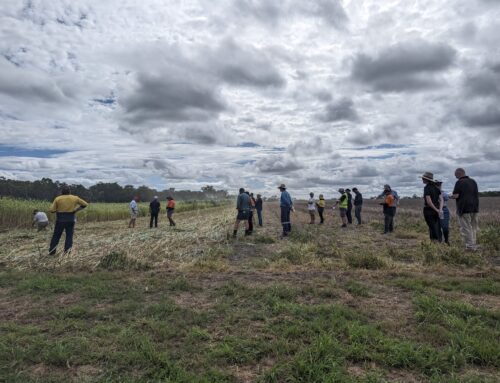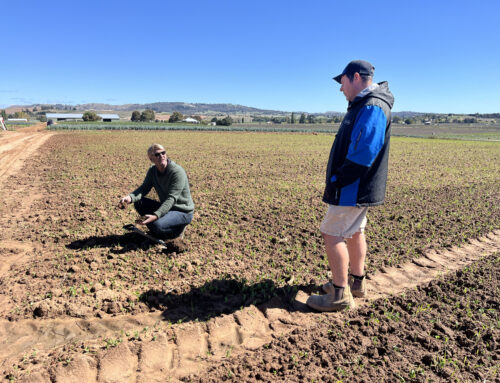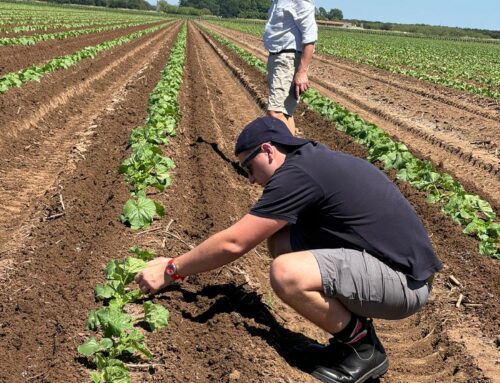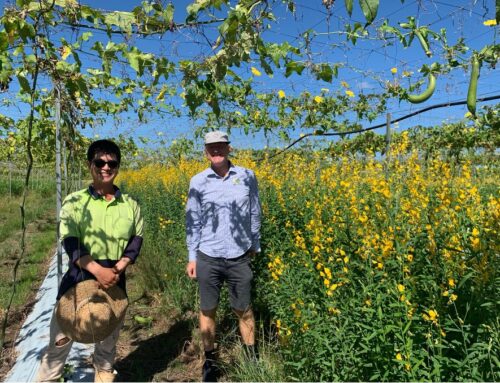As the use of biological crop products increases in the Australian vegetable industry, it is essential that growers have a clear understanding of soil biology and how these products can work effectively. This includes the role of mycorrhizae and how it can impact the quality and yield of a crop.
Mycorrhizae is a type of beneficial fungi that helps a plant to access essential nutrients such as phosphorus and nitrogen. It colonises the plant’s root system and increases its surface area to boost the plant’s ability to uptake nutrient and moisture, while also contributing to overall soil health
According to Sumitomo Chemical Australia Business Development Manager Jock Leys, mycorrhizae is the key to help vegetable growers unlock the full potential of their soil health and boost crop productivity.
“Some vegetable crops are highly dependent on mycorrhizae to grow productively. Where you don’t have a mycorrhizae colonisation, you could be losing anywhere from 20-50 per cent of the crop’s productivity,” he said.
Jock identified potatoes and lettuce as two vegetable crops that have responded well to mycorrhizae inoculants. This was demonstrated at the East Gippsland Vegetable Innovation Days in May 2020, where Sumitomo trialed EndoPrime (a plant and soil enhancement product that contains four strains of mycorrhizae) in a lettuce crop.
“The trial lent itself to mycorrhizae being applied because it had a brassica fumigant crop grown before it. Brassicas are known to fumigate mycorrhizae and wipe it out of the ground, so the fact that we could introduce mycorrhizae with an inoculant really helped,” Jock said.
“We had quite a positive response from growers and they certainly noticed better crop establishment in the areas of the cos and iceberg lettuce where the mycorrhizae was applied, as well as a better ability for the crop to overcome stress factors such as disease.”
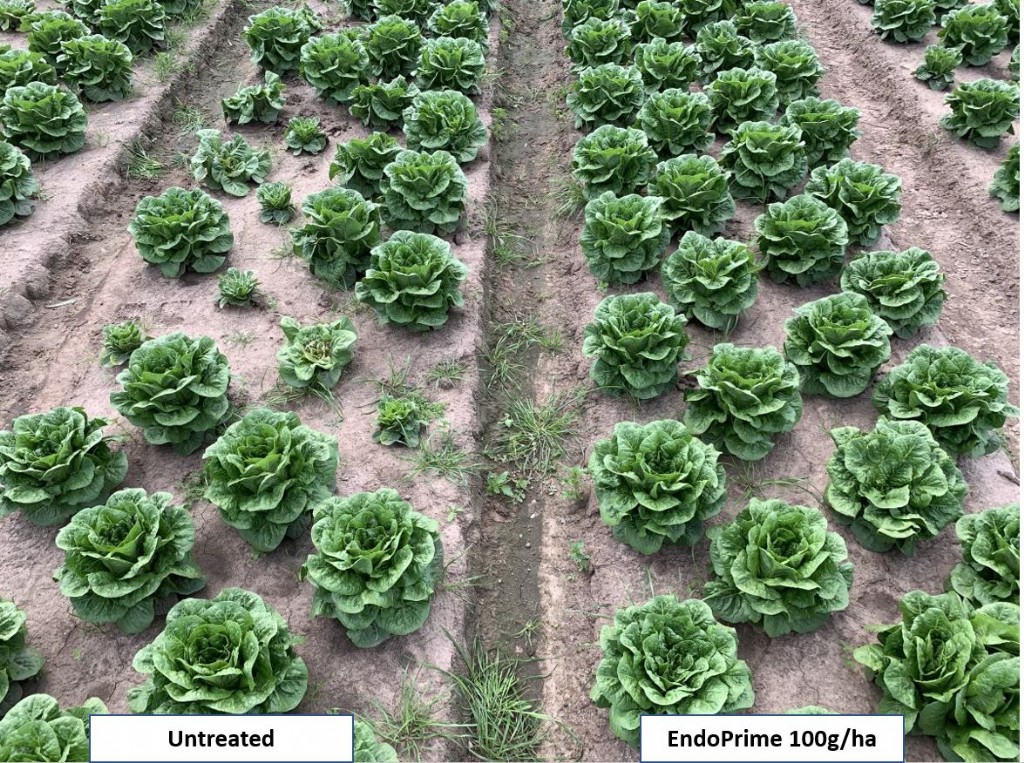
Above: Cos lettuce showing significantly improved evenness when inoculated with EndoPrime during a trial at the 2020 East Gippsland Vegetable Innovation Days.
For growers who are considering using biological crop products, Jock said that it is important to do your research before choosing a product to address a specific issue.
“It is critical to know the situation you’re dealing with so you can choose the right product. Test your soil to understand the current mycorrhizae level and consider the impact of the surrounding environment, crop rotations and different farming and cultural practices,” he said.
“Cultivation, fumigation and growing brassicas are the most significant factors to deplete mycorrhizae, hence its critical to know your situation to understand when a product like EndoPrime will provide the most help.
“Quality control is critical to ensure you are building organisms that are multiplying beneficial fungi within the soil rather than pathogenic fungi or diseases. Also make sure the product is from a reputable company with good QA standards.”
Access the Soil Wealth ICP Biological Crop Products Database
Sumitomo is one of many companies offering an increasingly diverse range of biological crop products, including biological insecticides and plant growth regulators for both the horticulture and broad acre industries. To help growers begin to make sense of these inputs, Soil Wealth ICP has published an evolving database of biological crop products, laid out side by side with simple, comparable information. You can access it here.
Interested in joining the Soil Wealth ICP Partnership Network? Click here.

